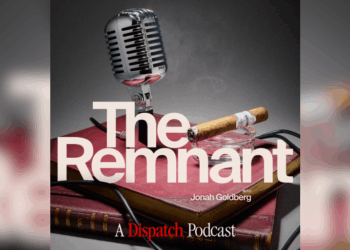from the everything-to-everybody dept
We’ve documented in detail how the whole AT&T–>Time Warner–>Warner Brothers Discovery merger process has been a pointless mess, resulting in no limits of layoffs and damage to the underlying brands. What was supposed to be a gambit by these companies to dominate streaming TV, wound up being a very expensive act of seppuku by over-compensated executives clearly out of their depths.
The merger disaster was particularly hard on HBO, once the pinnacle of prestige television. AT&T executives were obsessed with distancing themselves from the popular brand, and their decisions (like demanding Game Of Thrones be shot in short-form verticality so it would be easier to watch on phones) showed they really didn’t understand what made HBO popular in the first place.
So they engaged in a long series of pointless name changes, they eliminated a lot of the programming people liked, they threatened new restrictions on password sharing, they generally lowered overall quality in the mindless pursuit of scale, and they began hiking streaming video prices three times in the last three years. This, unsurprisingly drove subscribers to the exits.
HBO Max CEO Casey Bloys seems to have realized that all of that pointless deal-making by the extraction class wasn’t great for the brand or for quality television. Being everything to everyone in a bid to obtain impossible scale (by producing a lot of low quality mass market appeal bullshit) wasn’t what HBO was all about:
“The result was that HBO, the most premium of premium TV companies, became absorbed into something that was meant to be a Netflix-killer.
As HBO Max CEO Casey Bloys told reporters Nov. 20 in the company’s Hudson Yards offices, that ended up being a fool’s errand: “To Netflix’s credit, as the first mover, they have become a utility for consumers,” Bloys said. “In retrospect, we can all see that the streaming industry’s race for volume, years ago, found many brands losing their identity.”
So HBO is hoping to focus on being the kind of company that made it originally popular in the first place, nine years after AT&T originally signaled its intention to acquire Time Warner. Nine years for these guys to figure out that they should stick to what they’re good at: quality television.
Unfortunately, there’s some bad news for Bloys.
Warner Brothers is about to be purchased by the Ellisons, who are on a massive acquisition spree (TikTok, CBS, the exclusive rights to MMA). All of these deals are going to saddle HBO’s new parent company with mountains of debt. And just like AT&T, Time Warner, and Discovery, that’s going to result in an entirely new wave of layoffs, quality erosion, and price hikes to recoup the investment.
And this is all going to happen before the damage from all the past pointless consolidation deals (including ongoing layoffs from Paramount’s acquisition of CBS) have even fully formed.
It’s also going to result in an entirely new wave of trust fund brats, out of their depths and obsessed with scale, trying to “tweak” the HBO formula so they can obtain impossible scale by being everything to everyone. They’re going to look at the hard lessons HBO experienced over the last nine years and… completely ignore them and repeat all the same mistakes. Write it down.
Filed Under: cable, casey bloys, competition, consolidation, media, streaming, tv
Companies: hbo, warner bros. discovery











